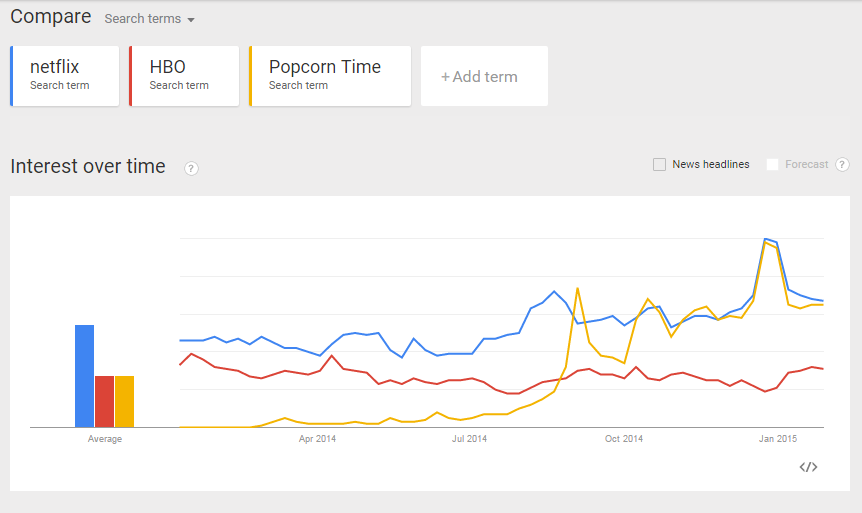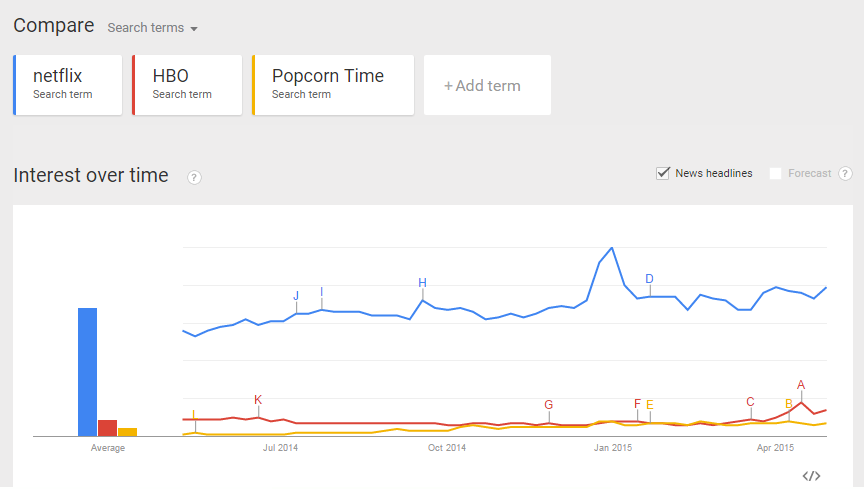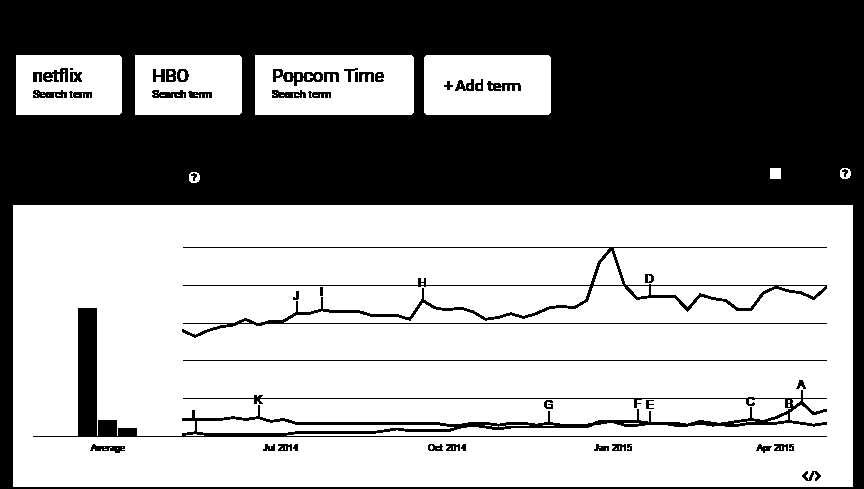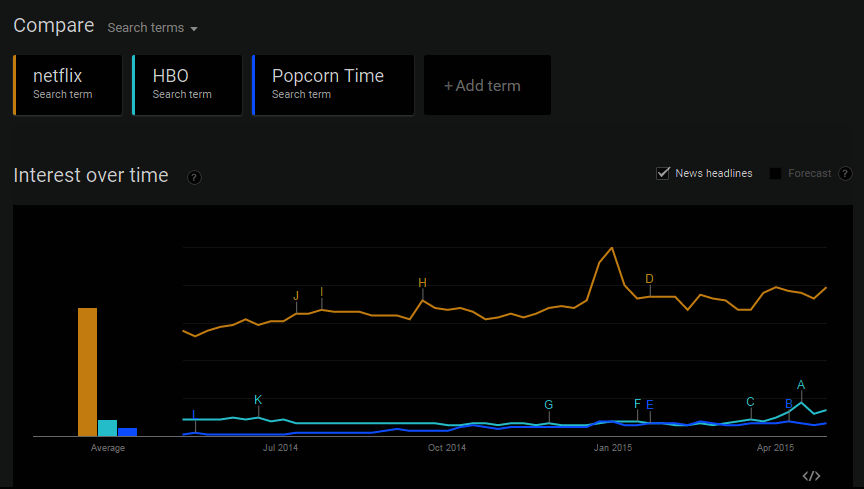Popcorn Time, Netflix, HBO and the future of digital media
Thursday, April 30, 2015
This story about a U.K. court ordering Popcorn Time blocked has been knocking around in my brain for a couple of days now. When stuff knocks around in my head for days, chances are it will end up in written form, right here. So here we go.
It is not an absurd ruling, although I certainly take issue with the claim that, as the MPAA alleged, Popcorn Time “has no legitimate purpose and it only serves to infringe copyright.” There are plenty of places to find legal torrents. I know most people are using Popcorn Time for piracy though, because they ask me if it is illegal, since it “seems a lot like Netflix.”
It is definitely illegal to use Popcorn Time or any other software to download, disseminate, view or otherwise consume any movie, song or other media for which you would otherwise have to pay money.
This is the insightful bit of the article, though:
For media companies, stamping out Popcorn Time has been a virtually impossible task. The free, open-source apps, originally created by an anonymous group of developers in Argentina, are now hosted on multiple sites and allegedly have several hundred volunteer programmers working on various iterations, including mobile versions of the apps.
Here is an interactive version of the graph displayed above, showing worldwide search volume from the preceding twelve months:
Netflix is doing just fine, for now. But HBO, excepting a bump in mid-April coinciding with the increased promotion of their new HBO Now service, is losing ground to Popcorn Time in worldwide search.
Here is the same type of search volume comparison, but this time zoomed in to the preceding 90 days and including only HBO and Popcorn Time:
HBO does not have as wide a lead as Netflix, but the time to react to stiff competition is not after that compeitition has matched or overtaken you. For Netflix and HBO, that time is right now. Netflix has massive infrastructure and an increasingly impressive library of original productions. And HBO has NBO Now, uh, now, which unbundles the premium channel from cable subscriptions. These are both good reactions to the rise of competitors, legitimate and otherwise. But those strategies are not enough.
The takeaway? Popcorn Time has become similar to Anonymous or, albeit a more controversial comparison, Al Qaeda. That is, it is not a single organization answering to a traditional leadership hierarchy. It is a splintered collection of rogue outfits, some more law-respecting than others, none “in charge.” It may represent the next step in business strategy companies like Netflix and HBO will need to take to continue their success.
The person or company that comes up with a way to legally and technically monetize torrent consumption of popular media at scale will be the next Mark Zuckerberg or Google.1
Now, if you will excuse me I am going to go think about how to legally and technically monetize torrent consumption of popular media at scale.
- I hope that, unlike Mark Zuckerberg and Google, they do not premise their business model on the erosion of privacy norms. ↩




#Law #Articles #tv #copyright #HBO #Netflix #piracy #Popcorn Time #U.K.